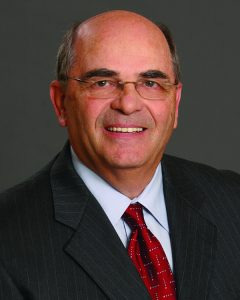July 2020 issue Thought Leaders for MCOL Members
Hank Osowski
Posted: July 2020
![]() [Printable Version]
[Printable Version]
What positives might ultimately result – post-pandemic in our healthcare system – due to the impact of COVID-19?
It may be too easy to focus on the many things lost during the last months as the nation, and the world, has battled the Coronavirus pandemic; social gatherings, graduation ceremonies, birthdays, weddings, live sporting events and, most tragically, the lives of so many of our fellow citizens, including hundreds of healthcare workers. But out of this misery we’ve also seen the emergence of many positive developments and new learnings that have significant potential to change our industry for the better as we move into a post-pandemic world.
Perhaps first among these positives is the broad recognition and enhanced appreciation for the tireless and valiant efforts of the hundreds of thousands of healthcare workers who put their lives on the line each day to serve our most vulnerable. Too often we place sports figures on pedestals and call them heroes. With few exceptions (such as Jessie Owens, Jackie Robinson, Artur Ashe, Muhammed Ali, Pat Tillman, Ted Williams and Billie Jean King) most are not heroes. The dedicated and committed individuals providing critical care in the trenches and far from the spotlight are now appropriately being recognized for the true heroes they are. This is one positive trend we hope continues.
Another important positive outcome is the recognition of the critical role that clear, concise and accurate communications plays in addressing the challenges of a health, or any, crisis. This is important for all points on the communication chain beginning with federal, state and city officials, public health authorities, and extends to local hospital and physician leaders. Certainly, experts may have differing experiences and opinions and can disagree on approaches, but as we’ve seen conflicting authoritative messages sow confusion, skepticism and distrust. Even as a (non-clinician) member of the healthcare community it has been difficult to keep abreast of the rapidly changing information, protocols and recommendations. If we in the industry cannot find consensus it will be impossible for the general public to understand the challenges and adhere to necessary precautions. If the current healthcare crisis has made us savvier about the importance of communications,which communication tools to use (and when) and the importance of selecting the right messenger to deliver critical information, that will be a valuable and positive outcome.
Though not a new technology, telemedicine has emerged as a clear winner during this health crisis. With stay-at-home orders in place in many communities and increased pressure on clinical teams to deal with serious conditions away from the hospital or office setting, telemedicine has seen rapid growth (Scripps Health reports going from zero telemedicine visits last October to more than 3,000 per day during this pandemic) and provides a valuable channel for patients and providers to connect in a safe and comfortable environment. It’s not yet perfect, nor universally available, but as we learn how to improve the effectiveness of the technology and communications skills of practitioners, telemedicine has the potential to radically transform how and where care is received for our most vulnerable and fragile patients. Telemedicine has already proven to be a significant win for underserved communities and patients with mobility challenges. There are opportunities for Medicare, Medicaid and private insurers to properly adjust reimbursement so that telemedicine is fully embraced by physicians.
The healthcare industry has traditionally been among the leaders in strategic planning for an environment that is rapidly shifting and advancing technical developments. Too often we have failed to complete planning for unexpected contingencies. Those that have done some contingency planning have mostly focused on natural disasters such as earthquakes, hurricanes and fires. The current pandemic has quickly taught us how unprepared we were for this viral disruption. Critical drugs, supplies, equipment and personnel were missing or in dramatic short supply when most urgently needed. It’s clear that we as an industry, with support from or federal and state leaders, need to collectively solve the problems of supply chain restoration, eliminate unnecessary regulatory burdens and accelerate technical and scientific innovation. If this can be accomplished, this would be a tremendous win for our country and our industry.
The resiliency and speed at which our industry responded to this health crisis is in itself a significant positive. Rapid development of vaccines, quick learnings on treatment protocols and PPE “made in America”. Health plans eliminated barriers to care and added supports for those who contracted this virus. Hospitals and health systems prioritized care for those most at risk and developed new protocols for treating patients who contracted this disease. Physicians, nurses and technicians embraced the challenges of treating these patients, even at great risk to themselves. I’m incredibly proud of my colleagues in the healthcare community.

Henry Osowski
Managing Partner, Strategic Health Group
Burbank, CA
